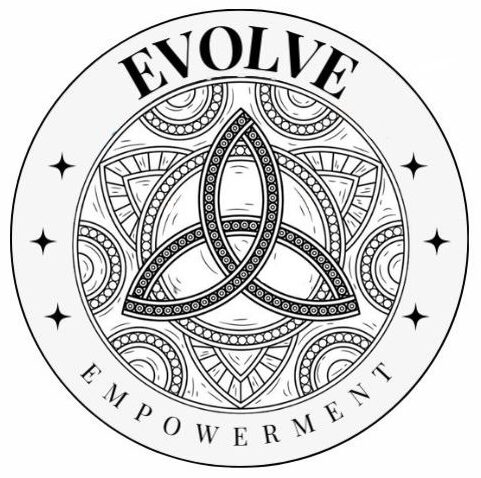In a world that often equates success with wealth, finding harmony between financial stability and personal fulfillment can feel like an elusive goal.
However, the pursuit of financial security does not have to come at the expense of a fulfilling life. With thoughtful planning and intentional actions, it is possible to enjoy the best of both worlds.
Achieving Financial Stability Without Sacrificing Life Quality
Understanding the Importance of Financial Stability in Today’s World
Financial stability is not merely about wealth accumulation; it’s about having the resources to meet life’s needs, manage unexpected expenses, and plan for the future.
It provides a foundation for security and enables freedom from constant financial stress, empowering individuals to pursue their goals without fear of financial collapse.
Setting Realistic Goals for Financial Independence
Financial independence is a journey, not a one-size-fits-all destination. Setting achievable goals—such as paying off debt, saving for a down payment, or building retirement funds—ensures progress without undue pressure.
These goals should reflect personal circumstances and priorities rather than societal benchmarks.
Building a Budget That Aligns With Your Life Priorities
A well-crafted budget serves as a financial roadmap, ensuring expenditures align with what matters most.
By categorizing expenses into needs, wants, and savings, individuals can strike a balance between responsible financial planning and enjoying life’s pleasures.
The Role of Emergency Savings in Reducing Financial Stress
An emergency fund acts as a financial safety net, mitigating stress during unforeseen challenges like medical emergencies or job loss.
Experts recommend setting aside three to six months’ worth of living expenses, offering peace of mind and flexibility in times of need.
Practical Tips for Maintaining Financial Discipline While Enjoying Life
Financial discipline doesn’t mean deprivation.
Simple practices such as tracking expenses, automating savings, and allowing room in the budget for entertainment or hobbies can foster a sustainable approach to money management.
Treating yourself occasionally prevents burnout and reinforces the connection between financial stability and life satisfaction.

Prioritizing Personal Fulfillment. Defining What Truly Matters
Awareness of Societal Pressures That Dictate the Meaning of Success.
The modern narrative often equates success with high income, luxury possessions, or social status.
Breaking free from these societal norms requires introspection and a conscious effort to define success on one’s terms.
Exploring Personal Values and Passions.
Identifying personal values and passions forms the bedrock of fulfillment. Whether it’s nurturing creativity, contributing to a cause, or fostering relationships, these pursuits offer purpose and meaning that transcend material wealth.
The Importance of Experiencing Joy in Everyday Life.
True fulfillment comes from savoring life’s small joys—spending time with loved ones, enjoying nature, or engaging in meaningful conversations.
Recognizing and cherishing these moments contributes to an enriched life experience.
Finding Hobbies and Activities That Nourish Your Spirit.
Hobbies provide an outlet for stress and a sense of accomplishment.
Whether through painting, hiking, or volunteering, investing in activities that resonate with your spirit fosters well-being.
Strategies to Align Life Goals With Personal Happiness.
Aligning goals with passions ensures that efforts yield satisfaction.
For example, pursuing a career aligned with personal interests or allocating time for self-care strengthens the connection between ambition and contentment.
Navigating the Intersection of Wealth and Well-being.
The Psychological Impact of Financial Stress.
Financial stress can lead to anxiety, depression, and strained relationships. Addressing these pressures requires proactive financial management and seeking emotional support when necessary.

Understanding Monetary Value Versus Intrinsic Value.
Monetary value provides external comforts, but intrinsic value—such as love, learning, and experiences—offers internal richness.
Balancing the two ensures holistic prosperity.
Balancing Career Ambitions With Work-Life Balance.
Ambition is commendable, but overwork can erode health and relationships. Setting boundaries and prioritizing leisure ensures career growth without sacrificing personal well-being.
Investing in Non-Material Wealth: Relationships and Self-Growth.
Strong relationships and personal development yield long-term fulfillment.
Time spent nurturing connections or learning new skills pays dividends far greater than monetary investments.
Time Management Tips for Balancing Income-Generating Activities With Leisure.
Effective time management allows room for both work and recreation.
Tools such as planners, digital calendars, or prioritization frameworks (e.g., Eisenhower Matrix) help allocate time wisely.
Sustainable Strategies for Long-Term Prosperity and Fulfillment.
The Art of Setting and Adjusting Life Priorities as Circumstances Change.
Life is dynamic, and priorities evolve.
Regularly reassessing goals ensures alignment with current realities and future aspirations.
Building Resilience: Preparing for Financial and Personal Setbacks.
Resilience is key to navigating life’s uncertainties. Building financial resilience through diversified income streams and personal resilience through mindfulness or counseling equips individuals for challenges.
Understanding the Role of Balance in Holistic Well-Being.
Balance is integral to well-being. Overemphasizing one area—be it wealth or leisure—can create disharmony. Regular self-check-ins ensure equilibrium.
Leveraging Technology and Resources for Financial Literacy.
Technology offers tools to simplify financial management, from budgeting apps to investment platforms.
Utilizing these resources enhances decision-making and fosters independence.
Planning for a Fulfilling Retirement. Securing Both Joy and Security.
Retirement planning extends beyond finances; it involves envisioning a lifestyle that combines comfort with passion projects, travel, or hobbies.
Early preparation ensures a seamless transition into this phase of life.

What is the valuable conclusion?
Balancing financial stability with personal fulfillment is a continuous journey that requires intention and adaptability.
It’s about using financial security as a foundation to pursue passions, nurture relationships, and embrace meaningful experiences.
This balance is not a one-time achievement but an evolving process of reflection, adjustment, and commitment to align your financial decisions with your values.
By integrating practical money management with a purpose-driven approach to life, you can create a harmonious blend of security and joy, ensuring a life that is both stable and deeply fulfilling.
Bibliography
- Kahler, R., & Richardson, R. (2014). Conscious Finance: Uncover Your Hidden Money Beliefs and Transform the Role of Money in Your Life. Kahler Financial Group.
- Ariely, D. (2008). Predictably Irrational: The Hidden Forces That Shape Our Decisions. HarperCollins.

